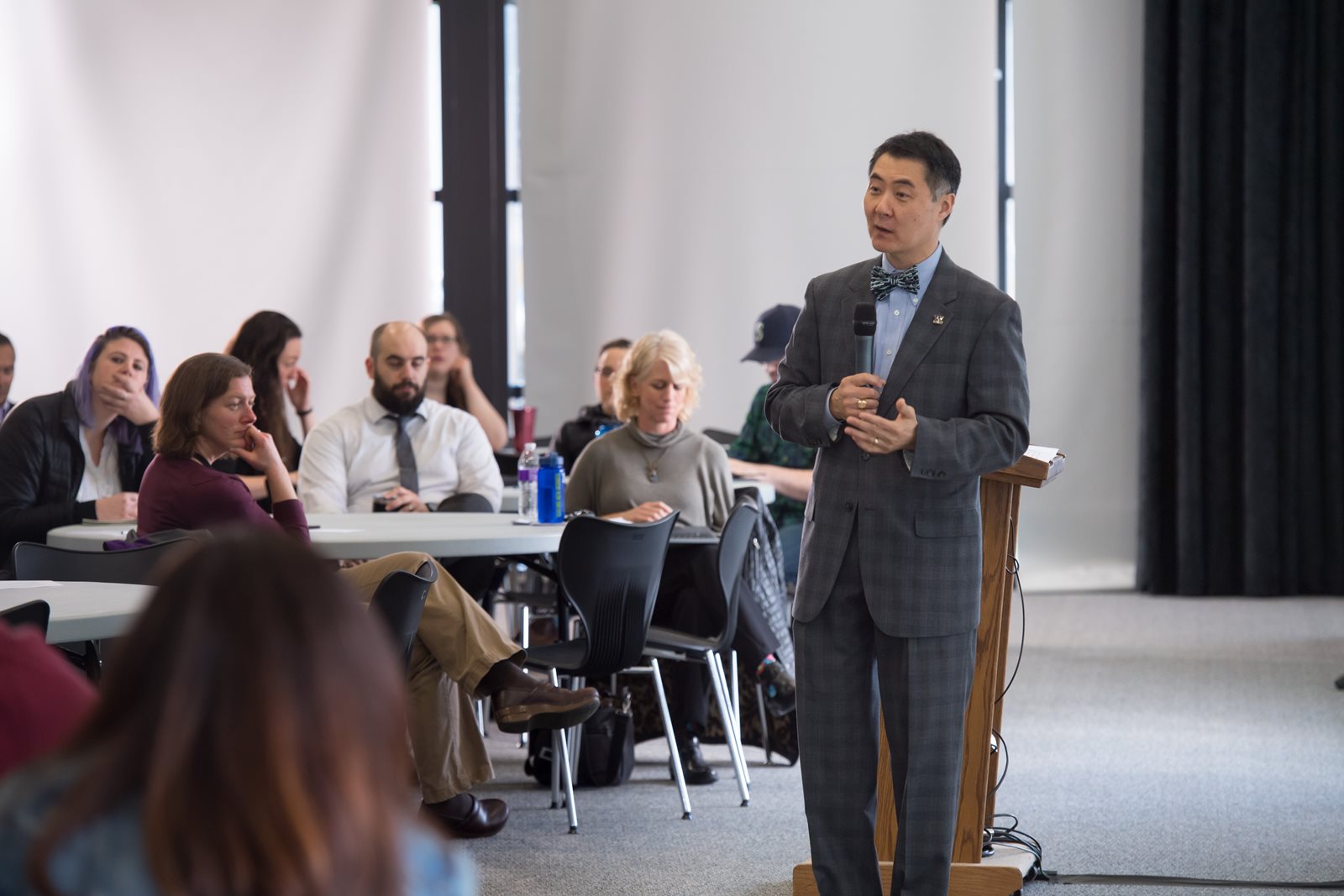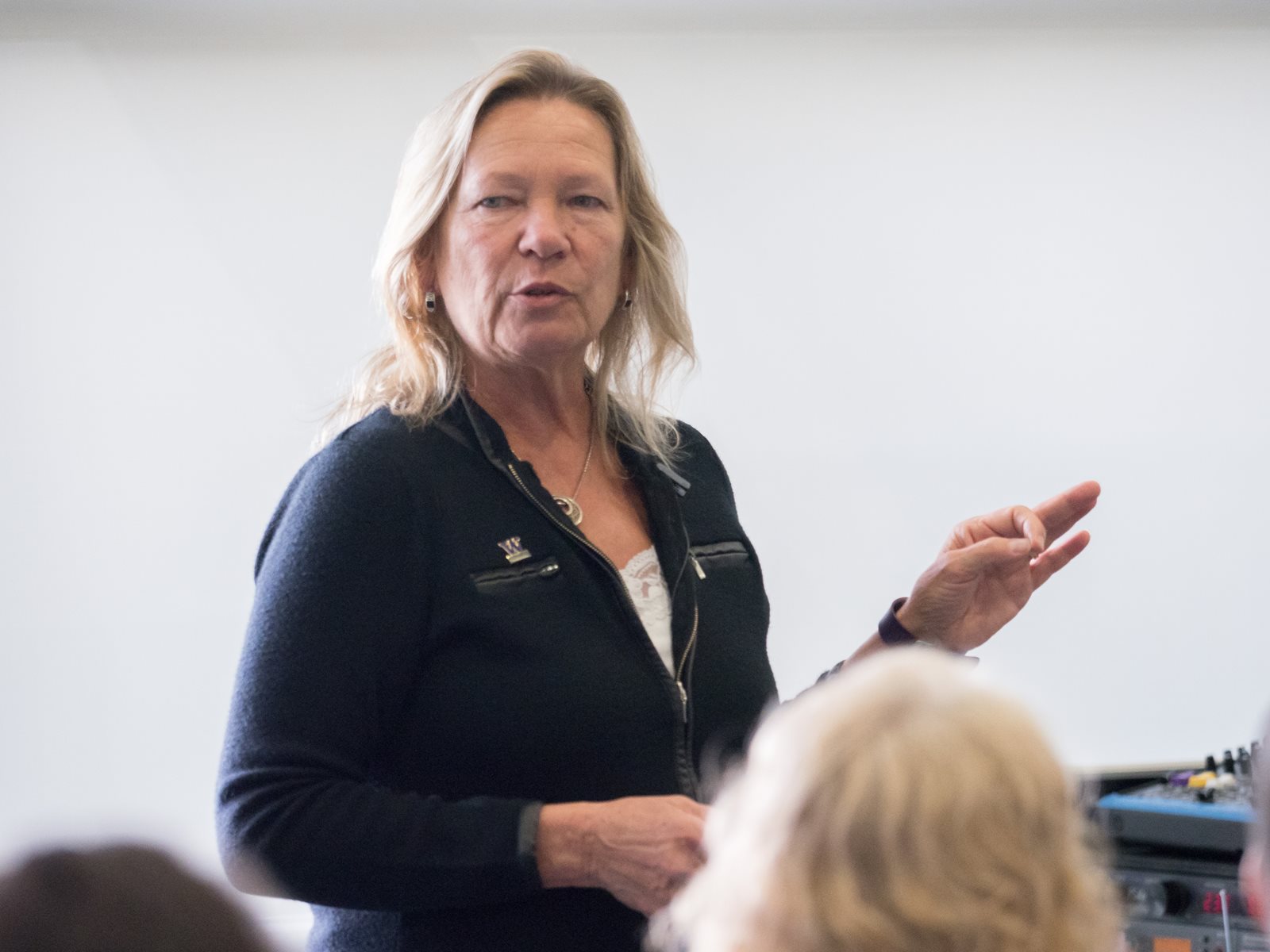Chancellor Wolf Yeigh kicked off the spring quarter town hall meeting by reaffirming the University of Washington Bothell’s mission to provide access to excellence in higher education and its vision to serve as a catalyst for success in the region.

Speaking to about 200 people in the North Creek Events Center on March 30, Yeigh shared with attendees the background behind the University’s decision to stabilize enrollment for the next several years. Holding the Bothell campus to a population of 5,300 “full time equivalent” students, he explained, is a “soft pause” that allows faculty and staff time to assess and improve our infrastructure and resource planning.
“We want to stabilize so you get a breather and we can plan how to take UW Bothell to version 2.0 or 3.0,” Yeigh said.
Even as we complete our 21st Century Strategic Plan (which ends in 2020), we also are beginning preparation for our next strategic plan, Yeigh said.

All of these efforts are centered around creating a sustainable campus and improving the student experience, Yeigh said, adding that the University’s strategic plans will include additional funding for “high demand-high need” programs as well as new academic buildings.
“And we can’t construct any more facilities on campus until we add parking,” Yeigh said. Faculty, students and staff are currently being asked to complete a short survey so the University can better understand their commuting habits and preferences.
In another initiative designed to serve student needs, Yeigh announced the creation of a task force that will study the possibility of providing clinical services for students on or near campus, noting that he recently discussed health care issues with Associated Students of the University of Washington Bothell (ASUWB) President Tanya Kumar and Vice President Cody Thorne. The task force will be led by School of Nursing and Health Studies Associate Professor Butch de Castro and is now seeking nominations fort members.
Yeigh also announced that the University’s new diversity center is set to open later this quarter. Space has been allocated in UW-1 and the implementation committee is now working on initial staffing and programmatic plans, led by committee co-chairs Dominick Juarez, past president of ASUWB, and Rosemary Simmons, counseling center director.

Finally, Ruth Johnston, above, vice chancellor of administration and planning, led attendees at the town hall through a short presentation on University budget planning. Attendees then gathered in small groups to discuss ideas to share with leadership on how to set priorities and criteria for decision making going forward.
(Marc Studer photos)



